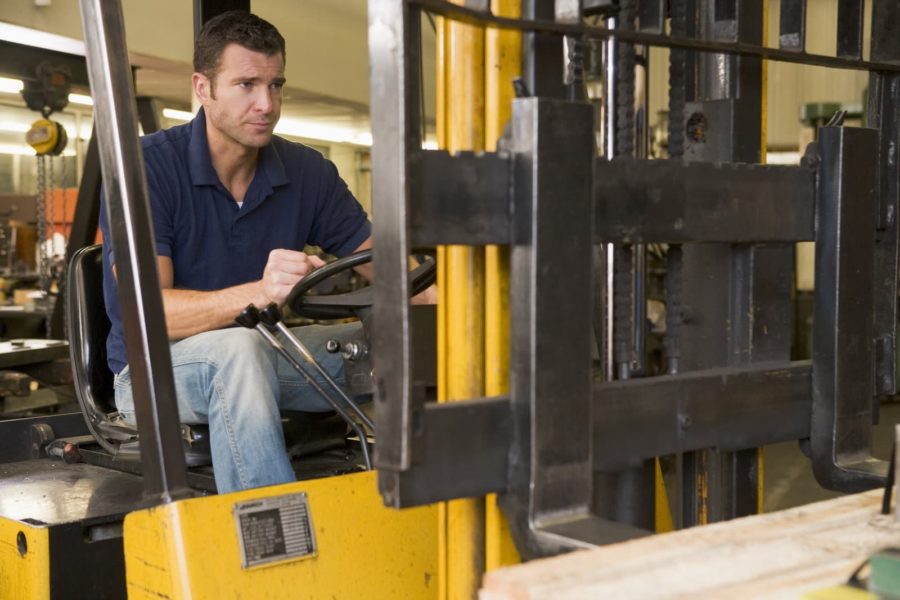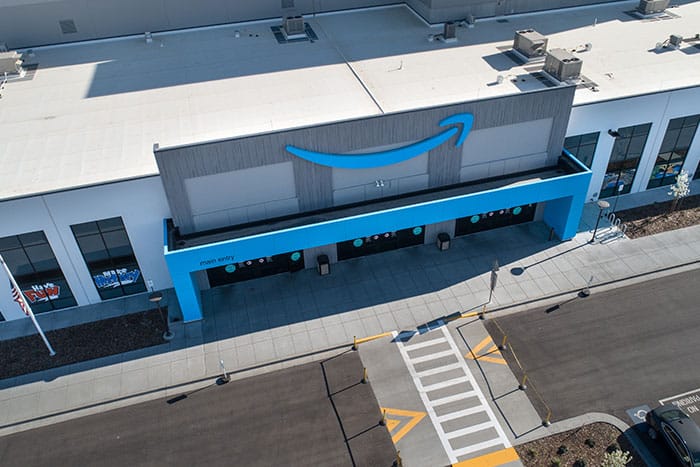Injured while working at an Amazon fulfillment center? Here’s what you need to know about obtaining your full benefits.
As the second-largest employer in the United States (behind Walmart) and the world’s largest retailer outside of China, Amazon is a massive company employing nearly 1 million Americans nationwide. This includes 7 distribution and fulfillment centers in North Carolina, located in cities such as Concord, Charlotte, Garner, Durham, and Kernersville. Each distribution center employs up to 1,500 full-time workers within the 800,000-square-foot warehouses.
Did you know?
Amazon is in the process of building its largest warehouse in Ontario, California. It’s a 4.1 million square foot facility that is 97 feet tall.
Amazon warehouse workers perform laborious jobs such as finding, picking, preparing, packing and shipping orders from heavy tools and furniture to chemicals to sharp knives.
Study shows that Amazon warehouse workers suffer severe injuries at twice the rate than is ‘normal’ in the industry —often because the company requires them to meet strict quotas and work faster, thus increasing the risk of injury further. As a result, these warehouses are breeding grounds for workplace accidents, injuries and workers’ compensation claims.
Amazon warehouses: ‘Epidemic of accidents’
Regardless of experience, Amazon warehouse workers report 80% higher rate of injuries while on the job, primarily due to overexertion at work, including:
- Back injuries from twisting
- Knee strains from squatting and climbing
- Shoulder sprains from repetitive use or carrying heavy orders
- Rotator cuff tears from overhead lifting
- Tripping over objects left in aisles
- Concussions from falling objects
- Cuts from sharp objects
- Long-term health issues due to repetitive work
Does Amazon pay for medical treatment after a work injury?
Work injuries are generally considered to be either acute or cumulative.
An acute injury is a one-time incident like tripping on stairs. This would be an event that a worker could recall and pinpoint a specific time when the incident occurred.
Some work injuries may instead be diagnosed as cumulative, which means symptoms like pain or swelling gradually worsen over time, eventually requiring treatment.
Both acute and cumulative work injuries often require treatment such as emergency room care, evaluations, consultations, follow-up visits, physical therapy, medication, labs, x-rays or other diagnostics, and sometimes even surgery.
Under workers’ compensation laws in North Carolina and South Carolina, Amazon must pay for medical treatment and lost wages to most employees who suffer a work injury.
Further, injured Amazon workers are typically entitled to workers’ compensation benefits in the form of financial compensation. Suppose a worker is forced to take off work while they recover. In that case, they are entitled to indemnity payment until an authorized physician releases them to return to work.
Unfortunately, some work injuries even result in Amazon warehouse deaths.
In 2017, 3 Amazon workers died at 3 separate facilities within a period of 5 weeks.
“Earth’s safest place to work”
Amazon has invested considerable money in enhancing safety procedures. Despite spending tens of millions, Amazon’s injury rates have been worse rather than better over the past few years.
Amazon has tried implementing robots as a form of safety in the warehouses to replace some duties of the employees. However, that has simply increased efficiency. Therefore, the expectations of what human workers can accomplish in a given amount of time have also risen, which increases the risk of injury.
According to Reveal from the Center for Investigative Reporting, injury rates at the 3 North Carolina warehouses—2 in Charlotte and 1 in Concord—have gone up since adding the robots to the staff.
Can I lose my job if I file a workers’ compensation claim with Amazon?
Amazon might want you to avoid seeking workers’ compensation. However, your employer cannot fire you for filing a workers’ compensation claim alone. If you are injured while working for Amazon, you should obtain legal counsel from a workers’ compensation attorney to guarantee you receive the workers’ compensation you are entitled to without being fired from your position.
It is against the law for your employer to fire you in retaliation for submitting a workers’ compensation claim or reporting a workplace accident. It is rare for an employer like Amazon to erroneously inform workers that they have been fired due to a workers’ compensation claim.
What are an injured worker’s rights?
Fortunately, Amazon employees in North Carolina and South Carolina have rights. Amazon employees must understand the process so they can obtain the medical treatment, income compensation and gas mileage reimbursement (while traveling to and from medical providers) to which they are entitled.
Since Amazon employs far more than 3 individuals, state law requires them to carry workers’ compensation insurance to pay medical bills and benefits in the event of an associate’s injury or death.
Fatal workplace injuries and workers’ comp at Amazon warehouses
In the event of death, Amazon’s workers’ compensation insurer must pay death benefits, including funeral expenses up to $10,000 in North Carolina or $2,500 in South Carolina, and a portion of lost income, to the deceased employee’s relatives.
How is lost income calculated? Lost income is calculated using two-thirds of the injured worker’s average weekly or monthly earnings. A worker may receive temporary total disability benefits while recovering from injury until a physician clears them to return to regular duty. The injured party might be entitled to temporary partial disability benefits if they can return to work after injury but must work fewer hours or at a decreased pay rate while recovering.
An employee could be entitled to permanent partial disability should the injury cause a long-term disability and prevent the worker from returning to their previous position. Permanent total disability compensation is possible if the injury disables the employee from employment for the rest of their lives.
Additional Resources
What to do if you are hurt during your shift at Amazon
Always report the injury to your supervisor and/or human resources as soon as possible or within a reasonable period of time.
If you require immediate transport to the emergency room, then you will not be penalized for not reporting the injury right away, but otherwise failing to report the accident can work against you.
Amazon’s workers’ compensation insurance should then pay the resulting medical bills; however, the law provides them the right to approve or authorize treatment. This means the insurance can deny treatment and refuse payment. Reasons for nonpayment can include assertions that the injury is not work-related, non-compensable, unreasonable or unnecessary.
Should you receive notice from your treating medical provider or employer’s insurance company that treatment for your work injury is denied, you should immediately contact our work injury attorney.
Read a detailed overview of the worker’s compensation claims appeals process – from calling an attorney to taking your claim to court.
Can Amazon deny you worker’s compensation?
If Amazon or the employer’s insurance company denies treatment for your work injury, you should immediately contact a workers’ compensation attorney.
At Wilder Pantazis Law Group you can get the legal representation you need. Focus on your healing. We’ll fight for your rights to obtain maximum financial compensation.





